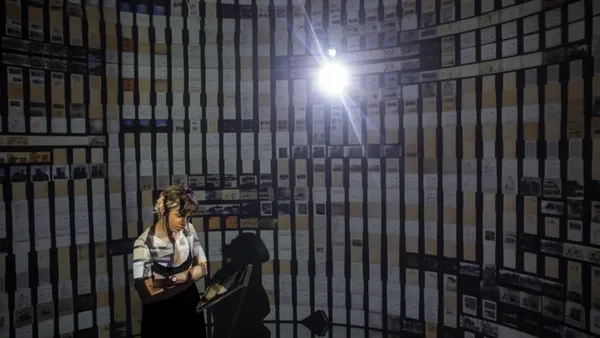Dive Brief:
- In efforts to advance racial and social equity, Starbucks will link executive compensation to diversity, equity and inclusion (DEI) goals beginning in the 2021 fiscal year (FY21), the company said Oct. 14. The Seattle-based company will also launch an Inclusion and Diversity Executive Council in the first quarter of FY21. Starbucks said it's sharing workforce diversity data "in more detail than we have previously shared," as well as making its filings with the Equal Employment Opportunity Commission public. Other initiatives announced include a partnership with employee resource groups and the launch of a leadership mentoring program.
- Starbucks has set a goal of Black, Indigenous, and People of Color (BIPOC) representation of "at least 30% at all corporate levels and at least 40% at all retail and manufacturing roles by 2025," according to the DEI report. In corporate level positions, White individuals represent 65.2% of employees; Asian 19.2%; Hispanic or Latinx 7.4%; Black 3.7%; and employees who identify as multiracial 2.6%. Women represent 69.2% of Starbucks employees in the U.S., overall; and there are roughly 47% BIPOC employees. Starbucks has reached 100% pay equity, according to the report.
- A mentoring program will begin in FY21 with a group of executives in senior vice president roles or higher paired with BIPOC directors in corporate and retail roles, the company said. It plans to increase talent development opportunities for BIPOC employees as well as partner with professional organizations that specialize in facilitating development. Anti-bias content will be included in hiring, development and performance assessment toolkits, according to Starbucks. The company will also invest in recognition and development programs for its employee resource groups — Black Partner Network, Hora Del Café, India Partner Network, Indigenous Partner Network and Pan-Asian Partner Network. An Inclusion and Diversity Virtual Leadership Summit scheduled for the second quarter of FY21 will be part of the initiative.
Dive Insight:
Starbucks has the responsibility to lead by example and will implement transparency and accountability to meet its commitment, CEO Kevin Johnson said in a letter accompanying the announcement.
Executive compensation at Starbucks will now be linked to DEI goals, which is a form of accountability that supports long-term changes, according to Mercer. Starbucks will also focus on racially and ethnically diverse representation on corporate boards of directors by joining the Board Diversity Action Alliance, Johnson said. Starbucks' new initiatives are built on the guidance offered in a prior Civil Rights Assessment conducted by Covington & Burling, according to the company. One of the recommendations was to hire a global chief inclusion and diversity officer. Nzinga "Zing" Shaw was hired for the role beginning at Starbucks in December 2019 "to help establish a strategic vision for the path ahead," the company said.
Starbucks also said all leaders in vice president roles or higher will be required to complete a two-hour anti-bias training and "the foundational and racial bias courses from the To Be Welcoming Curriculum," according to the company. This isn't Starbucks' first time partaking in diversity training. The company closed more than 8,000 U.S. stores and its corporate office for several hours in 2018 for racial bias training following an incident in Philadelphia when a store manager racially profiled two Black customers.
Starbucks' push toward recognizing and developing employee-led networks is to better understand and support the experiences of BIPOC employees, the company said. The networks could also help Starbucks understand the viewpoints of its diverse customers who advocate for employees. In June, amid national protests calling for racial justice, Starbucks received backlash for banning employees from wearing Black Lives Matter T-shirts and accessories. After a #BoycottStarbucks hashtag went viral, the company designed its own Black Lives Matter T-shirt.











